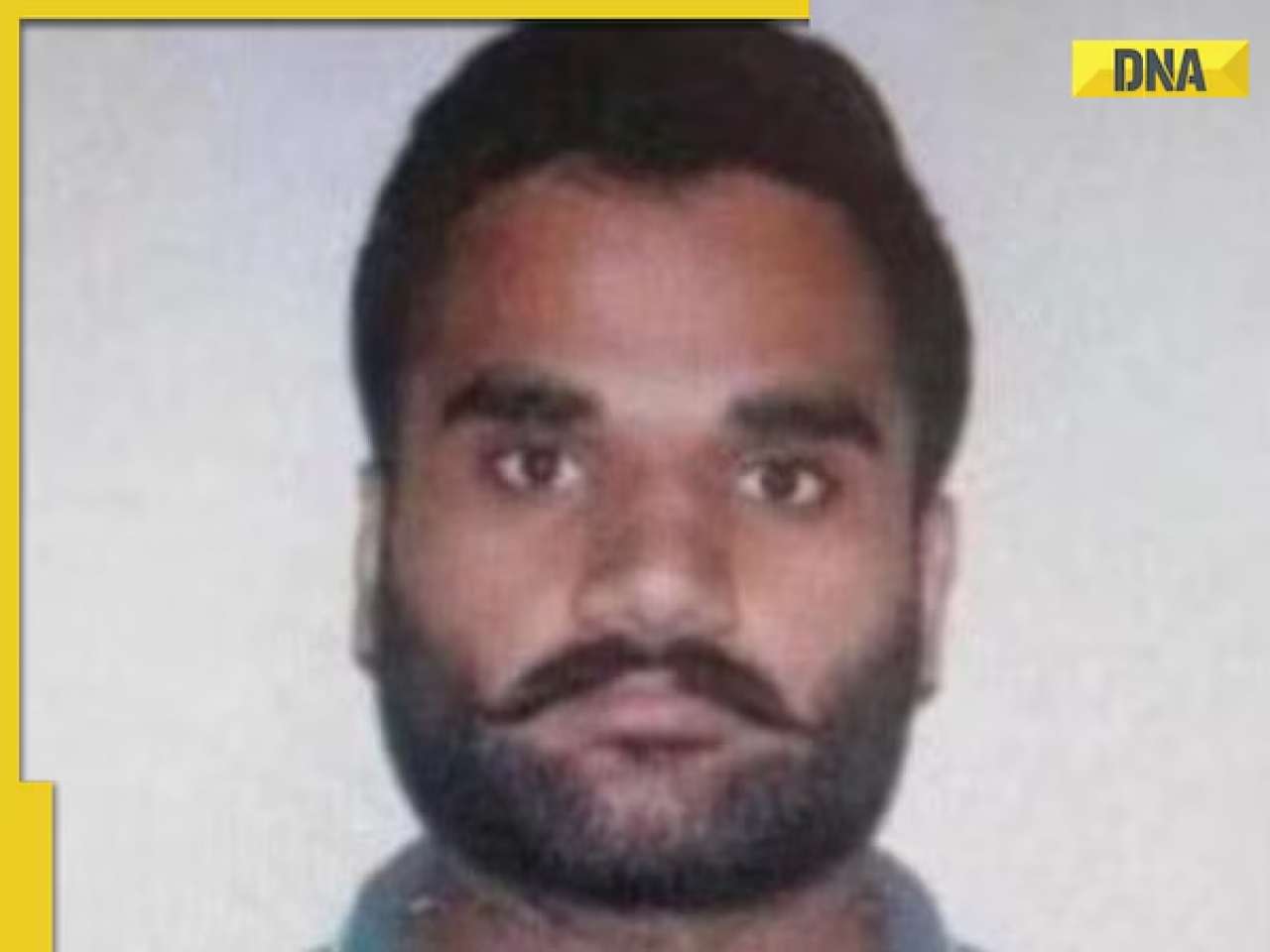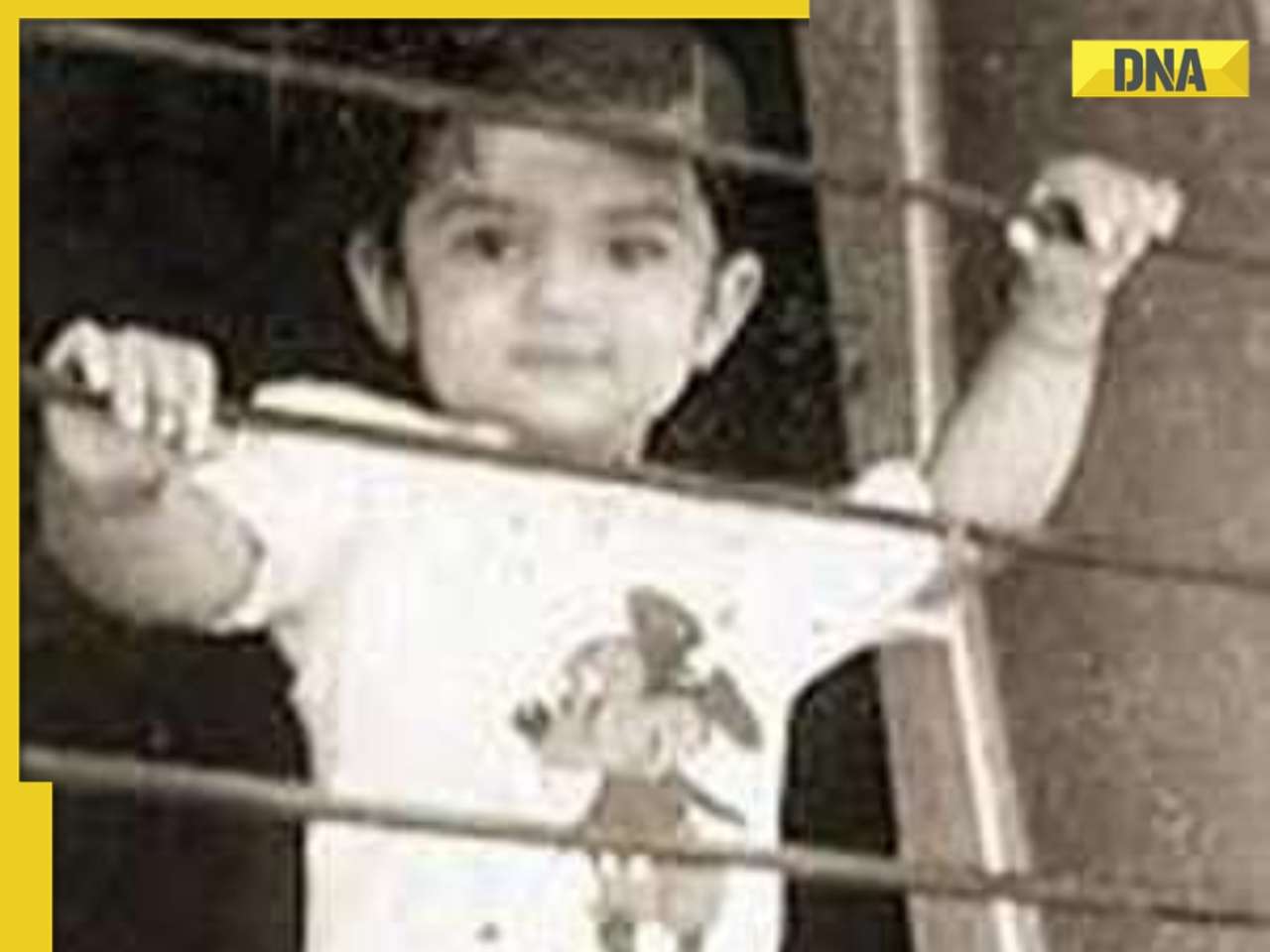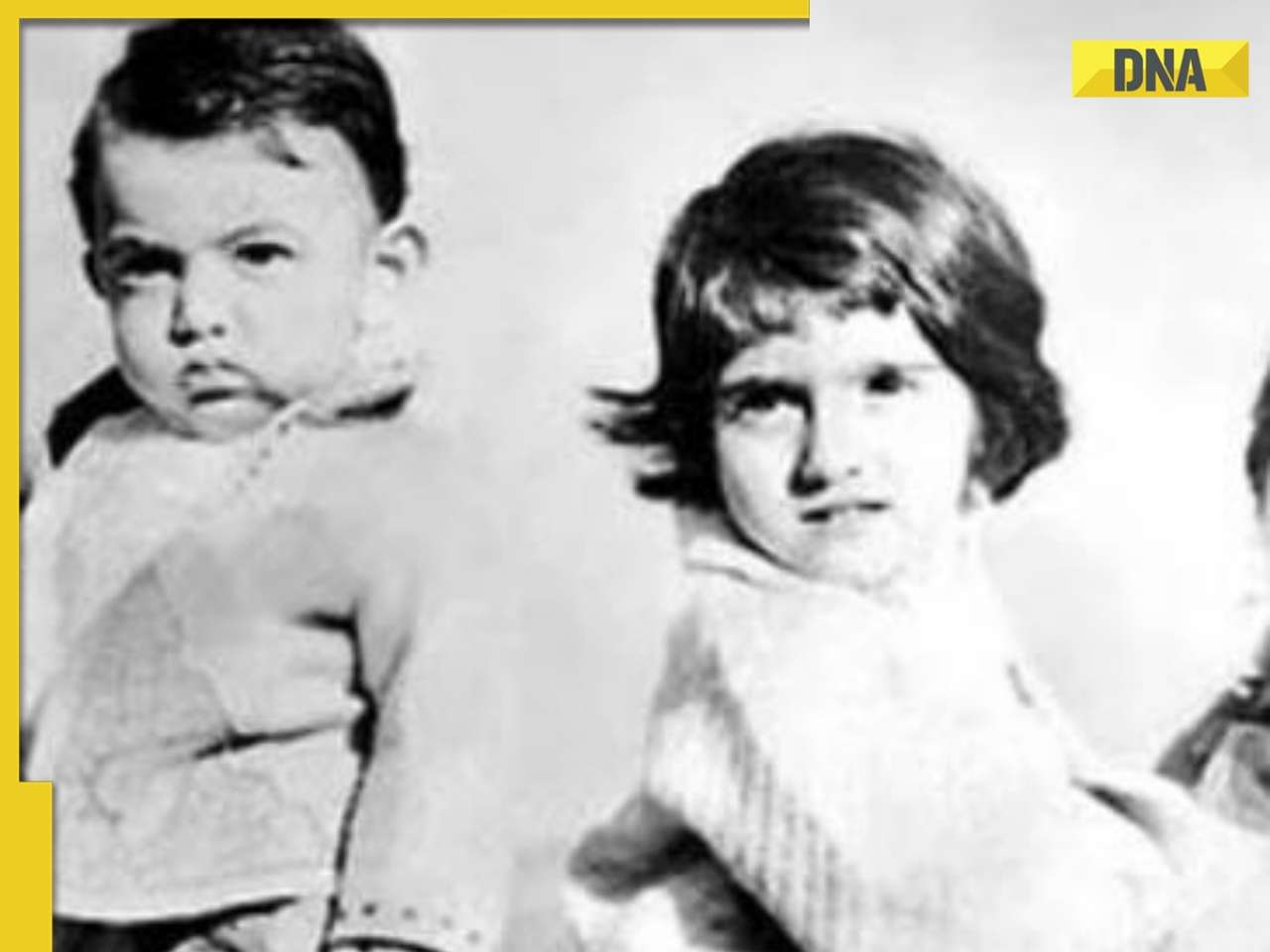The Nehru administration had snooped on many a communication between the kin of Subhas Chandra Bose. Intelligence Bureau memos and letters in dna's possession show that the snooping was not just limited to mails between the Bose family. Letters written by women who had kept Subhas Bose company in Europe were intercepted.
In addition, letters written to Bose's nephew Amiya Bose by his political associates and friends were detained, copied and sent to the Home Ministry. dna had earlier pointed out how Intelligence Bureau (IB) sleuths were stationed at the Elgin Road post office in Calcutta in a bid to open letters addressed to Amiya who at the time was staying at Woodburn road in Bengal's capital city.
At times, the writers of these letters engendered so much suspicion in the Nehru establishment that prompt background checks were carried out on these individuals. Handwritten notes were then dispatched to the Home Ministry as sleuths waited for further instructions on how to proceed against people in touch with the Bose family.
When Nehru Govt Sniffed Netaji in China
An IB memo (no:12586 TP. 605) dated July 30, 1949 shows that sleuths intercepted a letter addressed to Bose's nephew Amiya Bose at the Elgin Road post office. A copy of the letter was made and promptly sent to the Assistant Director of the IB at the Home Ministry in Delhi. The letter was allowed to be delivered to Amiya.
The letter was written by a Chinese national Chou Hsiang Kuang. Kuang was a scholar at Delhi University and a good friend of Amiya. Bose had helped one of Kuang's friends secure admission at the Jaipur Medical College. Amiya in previous letters to Kuang had asked him to help find out if Subhas Bose was somewhere in China.
The letter by Kuang to Bose dated July 22, 1949 reads: "I am so sorry I could not write to you earlier… As regards Netaji, I am still remembering what that appeared in the Central Daily News. It indicated that he was being kept at a camp somewhere in Manchuria."
This was not the first letter of the Chinese scholar to Amiya that was intercepted. An IB memo (no: 5010 CP. 893) shows another letter was intercepted on March 9, 1948, less than a year after India's independence. It reads: "I regret I could not find out about the news on Netaji that was published in a Chinese newspaper in Nanking sometime ago. I still believe that he (Netaji) is alive."
It is quite ironical that the Nehru government was snooping on Kuang's letters to find clues about the whereabouts of Subhas Bose. In May 1949, Kuang was appointed a lecturer in Chinese at the School of Foreign Languages under India's Ministry of Defence.
The Mysterious 'Spy of Netaji' in First Kashmir War
Barely a month before India and Pakistan declared a formal ceasefire on January 2, 1949 to end the First Kashmir War, IB sleuths at the Elgin Road post office intercepted a letter from a man whose name was given but not address. The IB memo (no: 31942/CP. 893) shows that a letter from a man named Morad Khan, addressed to Amiya, was intercepted on November 16, 1949 in Calcutta. A copy was made and the letter was allowed to be delivered.
Interestingly, the interception was authorised by the Nehru administration through a government order (no: 1735 P.S) on September 20, 1948. This interception was ordered barely a month after a resolution containing terms of the ceasefire, including a plebiscite on Kashmir was laid out in the United Nations. Nehru had supported a plebiscite to decide on the status of Kashmir many times after the conflict began.
The letter (translated from Bengali by the IB) begins with 'Netaji Zindabad'. From the letter it becomes apparent that Morad Khan was a man with deep knowledge of the discussions going on in Pakistan after India gained a decisive edge over it in the conflict. He wrote the letter to Amiya while he was in Calcutta.
The letter reads: "I am to come and go without a passport. It is risky and expensive. I had been to Lahore and went to Quetta and Rawalpindi because Europeans are holding big meetings there nowadays. They have discussed Nehru's talks with Atlee and Liaquat Ali. Now the British officers are thinking of how to win the plebiscite in Kashmir.
"They will not agree to the judgment if they are defeated and a temporary war will break out again. All these are tricks of the British. Ofcourse we will try till the end that the votes are not in favour of Pakistan. We shall not allow Kashmir to go into their hands. Secret propaganda has already been started. Correspondence is going on (between Pakistan) and America. I could not secure the copies of those correspondences only for my foolishness."
Morad Khan's letter goes on to talk about an American spy in India by the name of 'Mr Fredrick'. Khan warns Amiya that the 'American spy' is trying to foment trouble in India, especially in Bengal. The letter reads: "He (Fredrick) is surely behind the fire at the Calcutta Telephone Exchange. He has the support of the British monkeys and the Indian Communist Party. Occasionally he used to visit the Spencers restaurant in Calcutta opposite the Government House. He left for England on the same day when Nehru left. All the bloody Europeans also pay money to their India operatives like Ranaday, Bhattacharji, Chaudhri and others to create trouble. Amiya babu, be careful of these bastards. I heard they will blow a railway line somewhere."
![submenu-img]() Big update on Pakistan's first-ever Moon mission and it has this China connection...
Big update on Pakistan's first-ever Moon mission and it has this China connection...![submenu-img]() 2024 Maruti Suzuki Swift officially teased ahead of launch, bookings open at price of Rs…
2024 Maruti Suzuki Swift officially teased ahead of launch, bookings open at price of Rs…![submenu-img]() 'Kyun bhai kyun?': Sheezan Khan slams actors in Sanjay Leela Bhansali's Heeramandi, says 'nobody could...'
'Kyun bhai kyun?': Sheezan Khan slams actors in Sanjay Leela Bhansali's Heeramandi, says 'nobody could...'![submenu-img]() Meet Jai Anmol, his father had net worth of over Rs 183000 crore, he is Mukesh Ambani’s…
Meet Jai Anmol, his father had net worth of over Rs 183000 crore, he is Mukesh Ambani’s…![submenu-img]() Shooting victim in California not gangster Goldy Brar, accused of Sidhu Moosewala’s murder, confirm US police
Shooting victim in California not gangster Goldy Brar, accused of Sidhu Moosewala’s murder, confirm US police![submenu-img]() DNA Verified: Is CAA an anti-Muslim law? Centre terms news report as 'misleading'
DNA Verified: Is CAA an anti-Muslim law? Centre terms news report as 'misleading'![submenu-img]() DNA Verified: Lok Sabha Elections 2024 to be held on April 19? Know truth behind viral message
DNA Verified: Lok Sabha Elections 2024 to be held on April 19? Know truth behind viral message![submenu-img]() DNA Verified: Modi govt giving students free laptops under 'One Student One Laptop' scheme? Know truth here
DNA Verified: Modi govt giving students free laptops under 'One Student One Laptop' scheme? Know truth here![submenu-img]() DNA Verified: Shah Rukh Khan denies reports of his role in release of India's naval officers from Qatar
DNA Verified: Shah Rukh Khan denies reports of his role in release of India's naval officers from Qatar![submenu-img]() DNA Verified: Is govt providing Rs 1.6 lakh benefit to girls under PM Ladli Laxmi Yojana? Know truth
DNA Verified: Is govt providing Rs 1.6 lakh benefit to girls under PM Ladli Laxmi Yojana? Know truth![submenu-img]() Remember Heyy Babyy's cute 'Angel' Juanna Sanghvi? 20 year-old looks unrecognisable now, fans say 'her comeback will...'
Remember Heyy Babyy's cute 'Angel' Juanna Sanghvi? 20 year-old looks unrecognisable now, fans say 'her comeback will...'![submenu-img]() In pics: Arti Singh stuns in red lehenga as she ties the knot with beau Dipak Chauhan in dreamy wedding
In pics: Arti Singh stuns in red lehenga as she ties the knot with beau Dipak Chauhan in dreamy wedding![submenu-img]() Actors who died due to cosmetic surgeries
Actors who died due to cosmetic surgeries![submenu-img]() See inside pics: Malayalam star Aparna Das' dreamy wedding with Manjummel Boys actor Deepak Parambol
See inside pics: Malayalam star Aparna Das' dreamy wedding with Manjummel Boys actor Deepak Parambol ![submenu-img]() In pics: Salman Khan, Alia Bhatt, Rekha, Neetu Kapoor attend grand premiere of Sanjay Leela Bhansali's Heeramandi
In pics: Salman Khan, Alia Bhatt, Rekha, Neetu Kapoor attend grand premiere of Sanjay Leela Bhansali's Heeramandi![submenu-img]() DNA Explainer: Why Harvey Weinstein's rape conviction was overturned, will beleaguered Hollywood mogul get out of jail?
DNA Explainer: Why Harvey Weinstein's rape conviction was overturned, will beleaguered Hollywood mogul get out of jail?![submenu-img]() What is inheritance tax?
What is inheritance tax?![submenu-img]() DNA Explainer: What is cloud seeding which is blamed for wreaking havoc in Dubai?
DNA Explainer: What is cloud seeding which is blamed for wreaking havoc in Dubai?![submenu-img]() DNA Explainer: What is Israel's Arrow-3 defence system used to intercept Iran's missile attack?
DNA Explainer: What is Israel's Arrow-3 defence system used to intercept Iran's missile attack?![submenu-img]() DNA Explainer: How Iranian projectiles failed to breach iron-clad Israeli air defence
DNA Explainer: How Iranian projectiles failed to breach iron-clad Israeli air defence![submenu-img]() 'Kyun bhai kyun?': Sheezan Khan slams actors in Sanjay Leela Bhansali's Heeramandi, says 'nobody could...'
'Kyun bhai kyun?': Sheezan Khan slams actors in Sanjay Leela Bhansali's Heeramandi, says 'nobody could...'![submenu-img]() Meet actress who once competed with Aishwarya Rai on her mother's insistence, became single mother at 24, she is now..
Meet actress who once competed with Aishwarya Rai on her mother's insistence, became single mother at 24, she is now..![submenu-img]() Makarand Deshpande says his scenes were cut in SS Rajamouli’s RRR: ‘It became difficult for…’
Makarand Deshpande says his scenes were cut in SS Rajamouli’s RRR: ‘It became difficult for…’![submenu-img]() Meet 70s' most daring actress, who created controversy with nude scenes, was rumoured to be dating Ratan Tata, is now...
Meet 70s' most daring actress, who created controversy with nude scenes, was rumoured to be dating Ratan Tata, is now...![submenu-img]() Meet superstar’s sister, who debuted at 57, worked with SRK, Akshay, Ajay Devgn; her films earned over Rs 1600 crore
Meet superstar’s sister, who debuted at 57, worked with SRK, Akshay, Ajay Devgn; her films earned over Rs 1600 crore![submenu-img]() IPL 2024: Spinners dominate as Punjab Kings beat Chennai Super Kings by 7 wickets
IPL 2024: Spinners dominate as Punjab Kings beat Chennai Super Kings by 7 wickets![submenu-img]() Australia T20 World Cup 2024 squad: Mitchell Marsh named captain, Steve Smith misses out, check full list here
Australia T20 World Cup 2024 squad: Mitchell Marsh named captain, Steve Smith misses out, check full list here![submenu-img]() SRH vs RR, IPL 2024: Predicted playing XI, live streaming details, weather and pitch report
SRH vs RR, IPL 2024: Predicted playing XI, live streaming details, weather and pitch report![submenu-img]() SRH vs RR IPL 2024 Dream11 prediction: Fantasy cricket tips for Sunrisers Hyderabad vs Rajasthan Royals
SRH vs RR IPL 2024 Dream11 prediction: Fantasy cricket tips for Sunrisers Hyderabad vs Rajasthan Royals ![submenu-img]() IPL 2024: Marcus Stoinis, Mohsin Khan power Lucknow Super Giants to 4-wicket win over Mumbai Indians
IPL 2024: Marcus Stoinis, Mohsin Khan power Lucknow Super Giants to 4-wicket win over Mumbai Indians![submenu-img]() Viral video: Man's 'peek-a-boo' moment with tiger sends shockwaves online, watch
Viral video: Man's 'peek-a-boo' moment with tiger sends shockwaves online, watch![submenu-img]() Viral video: Desi woman's sizzling dance to Jacqueline Fernandez’s ‘Yimmy Yimmy’ burns internet, watch
Viral video: Desi woman's sizzling dance to Jacqueline Fernandez’s ‘Yimmy Yimmy’ burns internet, watch![submenu-img]() Viral video: Men turn car into mobile swimming pool, internet reacts
Viral video: Men turn car into mobile swimming pool, internet reacts![submenu-img]() Meet Youtuber Dhruv Rathee's wife Julie, know viral claims about her and how did the two meet
Meet Youtuber Dhruv Rathee's wife Julie, know viral claims about her and how did the two meet![submenu-img]() Viral video of baby gorilla throwing tantrum in front of mother will cure your midweek blues, watch
Viral video of baby gorilla throwing tantrum in front of mother will cure your midweek blues, watch








































)









)
)
)
)
)
)